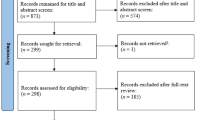Abstract
This chapter presents a general overview of the Philippines in terms of demography, its people and economy. It also outlines a profile of the extent to which usability as a special topic is taught in higher education institutions and the recent efforts by academia to develop knowledge in the field of human-computer interaction in general and in usability, in particular. Two sample industrial projects are described as illustrations of usability studies conducted by students in the instructional laboratories in two leading universities in the Philippines.
Access this chapter
Tax calculation will be finalised at checkout
Purchases are for personal use only
Similar content being viewed by others
References
Commarford, P., Lewis, J., Smither, J.A., Gentzler, M.: A comparison of broad versus deep auditory menu structures. Hum. Factors 50(1), 77–89 (2008)
Kurosu, M., Kashimura, K.: Apparent usability vs. inherent usability. In: CHI ‘95 Conference Companion, Denver pp. 292–293 (1995)
Seva, R., Gosiaco, K.G., Pangilinan, D., Santos, C.E.: A validation of affect and apparent usability relationship using structural equation modeling. In: 17th World Congress on Ergonomics, Beijing (2009)
Singh, J.: From http://www1.american.edu/initeb/js5518a/Country-analysis-philippines.html (December 2003). Retrieved 7 Feb 2010
Takagi, H., Saito, S., Fukuda, K., Asakawa, C.: Analysis of navigability of Web applications for improving blind usability. In ACM Transactions on Computer-Human Interaction 14, 3–13 ACM Press 2007
Toral, J.: Philippine software industry 2010 flight plan. http://www.cmmiphilippines.com/philippines.software.industry.2010.flight.plan.html(7 February 2010). Accessed 18 Oct 2010
Author information
Authors and Affiliations
Corresponding author
Editor information
Editors and Affiliations
Rights and permissions
Copyright information
© 2011 Springer-Verlag London Limited
About this chapter
Cite this chapter
Castillo-Matias, A., Seva, R.R. (2011). Usability in Philippines. In: Douglas, I., Liu, Z. (eds) Global Usability. Human-Computer Interaction Series. Springer, London. https://doi.org/10.1007/978-0-85729-304-6_15
Download citation
DOI: https://doi.org/10.1007/978-0-85729-304-6_15
Published:
Publisher Name: Springer, London
Print ISBN: 978-0-85729-303-9
Online ISBN: 978-0-85729-304-6
eBook Packages: Computer ScienceComputer Science (R0)




